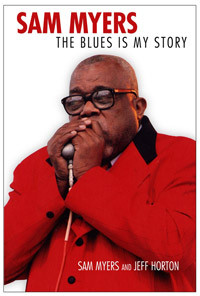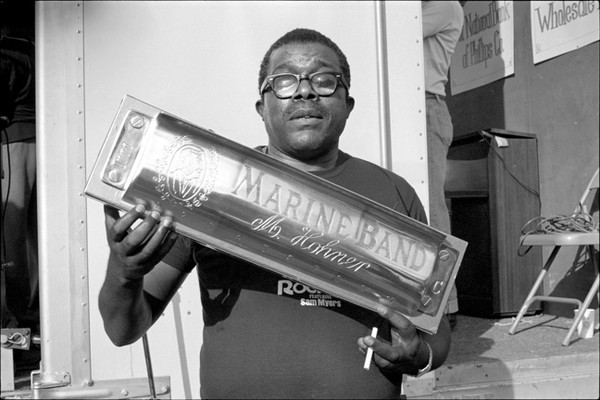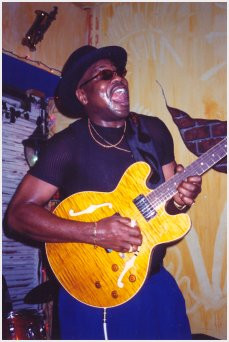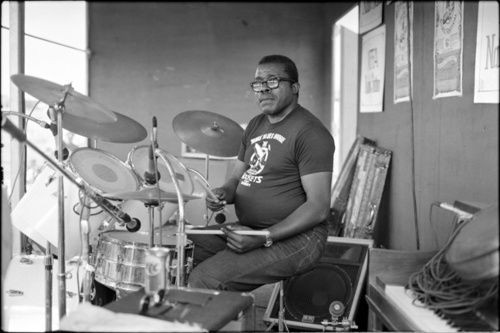Sam Myers
Настоящее имя: Sam Myers
Об исполнителе:
US blues singer and multi-instrumentalist (harmonica, drums, bass & guitar). Author. b. February 19, 1936 in Laurel, Mississippi - d. July 17, 2006 in Dallas, Texas Sam Myers, the Mississippi blues singer and harmonica ace whose career got a second wind in Texas, died Monday after a yearlong battle with throat cancer. He was 70. Mr. Myers died at his home in East Dallas, where he'd lived since 1986 when he left the Delta to join Dallas-based Anson Funderburgh & the Rockets. Diagnosed with throat cancer in February 2005, he had his larynx removed in April at the Mayo Clinic in Minnesota, and had been recovering at home. "Sam had his own unique style that people now try to emulate," Funderburgh said Monday in a prepared statement. "His harmonica playing had this hornlike quality to it that made him sound different than Sonny Boy [Williamson] or Big Walter," said his friend and collaborator, Brian "Hash Brown" Calway. "He was a great vocalist and songwriter, too. He'd get up onstage and make up a song on the spot about some girl who'd just broke his heart and it would put chills up your neck." His best-known song was 1956's ``Sleeping in the Ground," a gritty blues noir about a jealous lover that was later recorded by everyone from Robert Cray to Blind Faith, the British group featuring Steve Winwood and Eric Clapton. Last year, Clapton told the Dallas Morning News, ``I'm a big fan of Sam Myers." Born in 1936 in Laurel, Miss., and raised near Jackson, Mr. Myers spent most of his life nearly blind, the result of a childhood bout with cataracts. After teaching himself to play drums, he landed a scholarship in the early '50s at a music school in Chicago, where he met Elmore James. He toured with the ``Dust My Broom" hit-maker for nearly a decade and played harmonica on James' 1961 classic "Look on Yonder Wall." "Sleeping in the Ground," a solo hit for Mr. Myers, introduced him to a new generation of fans in the 1960s and '70s. But like a lot of 1950s bluesmen, Mr. Myers said he was tricked out of his songwriting royalties. ``It's a disgusting thing, really," Mr. Myers told The Dallas Morning News last year. ``This is a song I wrote, and I didn't even get a dime for it, and everybody else is making money with it." Funderburgh had been performing ``Sleeping in the Ground" for years when he met Mr. Myers at a concert in Mississippi in 1982. The two became friends, and when original Rockets singer Darrell Nulisch quit in 1986, Mr. Myers joined and moved to Dallas. With Mr. Myers fronting the group, Anson Funderburgh & the Rockets put out eight CDs and won nine W.C. Handy Awards, the blues equivalent of the Grammys. Mr. Myers won for best harmonica player (1988) and vocalist (1989). He released his first solo album in May 2004, "Coming From the Old School." Later that year, Mr. Myers, a lifelong smoker, came down with what doctors originally thought was bronchitis. In February 2005, he was diagnosed with a malignant polyp in his throat and underwent seven weeks of radiation treatment. In August, friends staged a benefit concert featuring Jimmie Vaughan, Delbert McClinton and a brief, surprise harmonica solo by Mr. Myers. It was one of the last times he ever performed. "Sam's one of the last of the old-school blues guys," McClinton told the Morning News before the show. "He's out there doing it, night after night after night, and to me, that's the sign of somebody who can't get enough of it." Yet Mr. Myers didn't like to admit how passionate he was about the blues: "For 50 years, I've looked at music the way I look at working at the mattress factory in Mississippi where I used to work -- you're just doing a job," he said last year. He was famous for his gruff exterior, which was partly a way to keep fans from fawning over him, according to his friends. Mr. Myers leaves a son, a sister, a brother, and two grandchildren. © Copyright 2006 Globe Newspaper Company. By Thor Christensen




